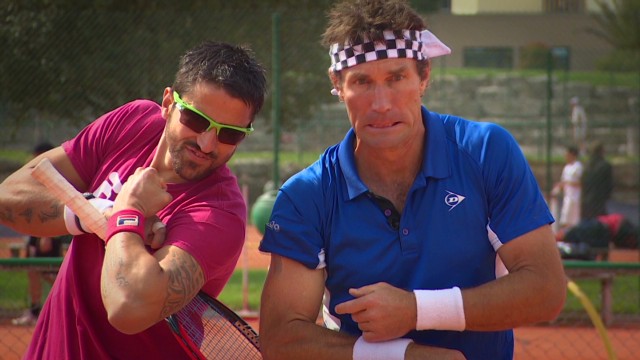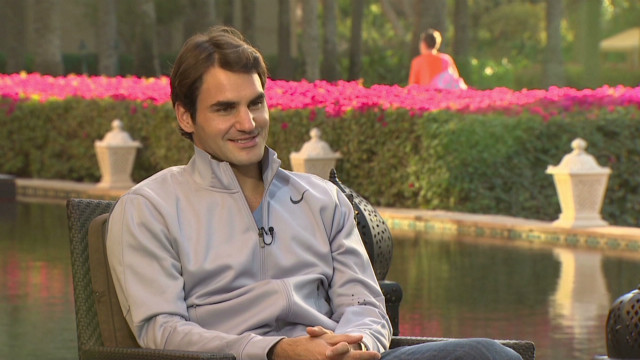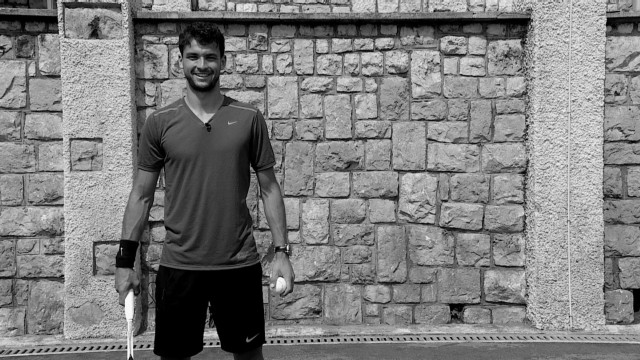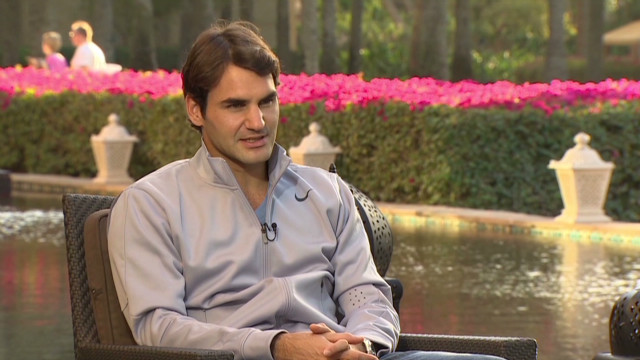Story highlights
- Janko Tipsarevic is adamant that none of the players he hangs around with are drug cheats
- A biological passport program was launched after players called for more tests
- Tipsarevic was among a minority of players tested both in and out of competition in 2012
Roger Federer says it's naive to think tennis doesn't have drug cheats. But Janko Tipsarevic, who has played at the year-end championships the previous two seasons, is of the belief that his fellow professionals aren't doping -- or at least not on a widespread basis.
Federer, Novak Djokovic, Rafael Nadal and Andy Murray -- the sport's most influential players who have combined won more than 30 grand slam titles -- have all called for either more tests or stricter controls, and last month the International Tennis Federation duly announced that it was adopting the biological passport program.
"I live in the belief that we are playing a clean sport," world No. 10 Tipsarevic told CNN's Open Court.
"If there is doping involved, maybe there is, maybe there isn't. But I can guarantee you that the people I'm hanging around with, none of them (are) doping."
In the new initiative a player's blood profile can be tracked, similar to cycling, a sport still reeling from Lance Armstrong's admission that he used performance enhancing drugs.
Significant changes can alert authorities to a potential doping infraction and more blood tests will also be carried out.
According to ITF statistics, Tipsarevic was among the minority of players who had to provide samples both in competition and outside of it in 2012.
The number of samples he provided in competition, in the highest category listed as seven or more, put him in the minority, too. The figures didn't include tests carried out by national doping agencies and at the Olympics and Paralympics.
As a top-50 player, Tipsarevic must adhere to the so-called whereabouts rule by making himself available to be tested in an one-hour slot for an out-of-competition test if the drug testers randomly come calling.
The rule has often given players headaches, with Serena Williams, the women's world No. 1, telling reporters in Dubai in February that testers had once paid her a visit in Mauritius.
"I like things as they are because the international doping agency needs to know every single day of my life where I am and if I'm changing locations," Tipsarevic said.
"We need to fill out this form to say today we're going to be there and at any time they can come and test us. On top of that you have the local drug testing.
"You have the tournament testing when you play tournaments ... I don't want to take it too far."
In February, Murray called for more blood testing, saying that tennis needed to do everything it could "to ensure that everyone competing at the highest level and below is clean."
While just under 2,000 urine samples were collected in 2012, less than 200 blood tests were conducted.













